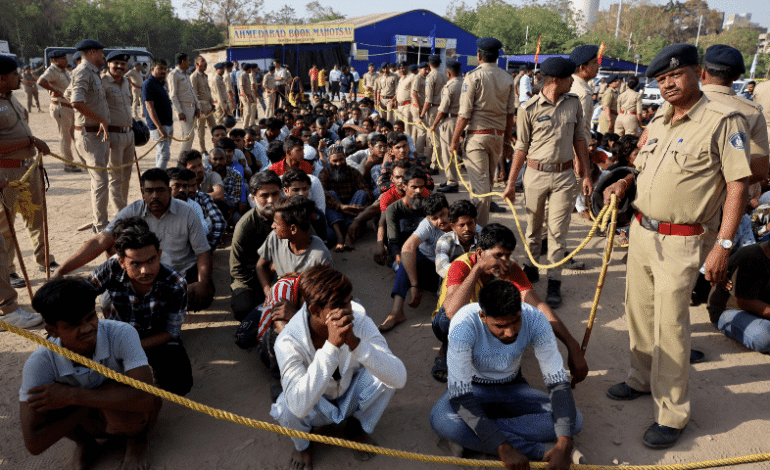
India Accused of Illegal Deportations to Bangladesh Amid Crackdown on Migrants
India has deported hundreds of people to Bangladesh without trial, a move confirmed by both governments and condemned by human rights activists and lawyers. Critics say the deportations are illegal, discriminatory, and based on ethnic and religious profiling.
Indian authorities claim those expelled are undocumented migrants, while activists argue that many are lifelong residents of India, some even possessing government-issued identification. The operation has been intensified following an April terrorist attack in Indian-administered Kashmir, which the Indian government blamed on Pakistan. The aftermath triggered a sweeping security crackdown across the country, resulting in thousands of detentions and forced removals.
Among the deported is Rahima Begum from Assam, who says she and five other Muslims were taken by police to the Bangladesh border and told to crawl through swampland under threat of being shot. Locals in Bangladesh found them and returned them to Indian authorities after border guards allegedly beat them. A week later, Begum was quietly released back home with a warning to remain silent.
Activists say these actions are part of a broader anti-Muslim campaign led by India’s Hindu nationalist government. The language used by top officials—referring to migrants as “termites” and “infiltrators”—has heightened fears among the country’s 200 million Muslims, particularly those who speak Bengali.
Bangladesh has pushed back against the expulsions, with its border guards confirming that over 100 of those forced across were actually Indian citizens. According to Bangladeshi authorities, more than 1,600 people have been pushed over the border since May, though Indian media reports the number could be as high as 2,500.
Legal experts insist that under Indian law, no one can be deported without due process or confirmation that the receiving country will accept them. However, in this crackdown, such protocols have been bypassed. In Gujarat alone, police reported detaining over 6,500 individuals, many of them later released after it was revealed they were Indian citizens.
One such case is that of mason Nazimuddin Mondal, who was detained in Mumbai, flown to the northeastern state of Tripura, and pushed into Bangladesh. He says he showed his official ID but was ignored. After returning to India, he now lives in fear, too frightened to seek work.
Rights groups and legal advocates warn that the mass deportations violate international law and are driven by ideology rather than evidence. They argue that many of those targeted are poor, working-class Bengali-speaking Muslims—victims of what they describe as a political and religious agenda.






